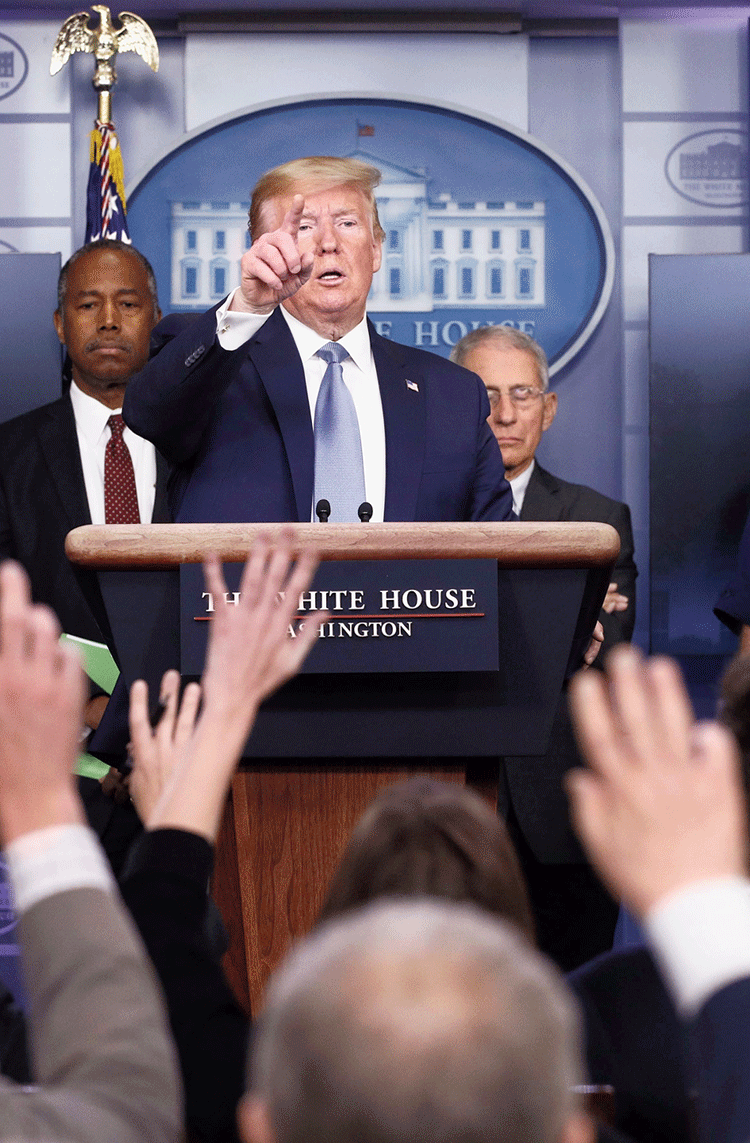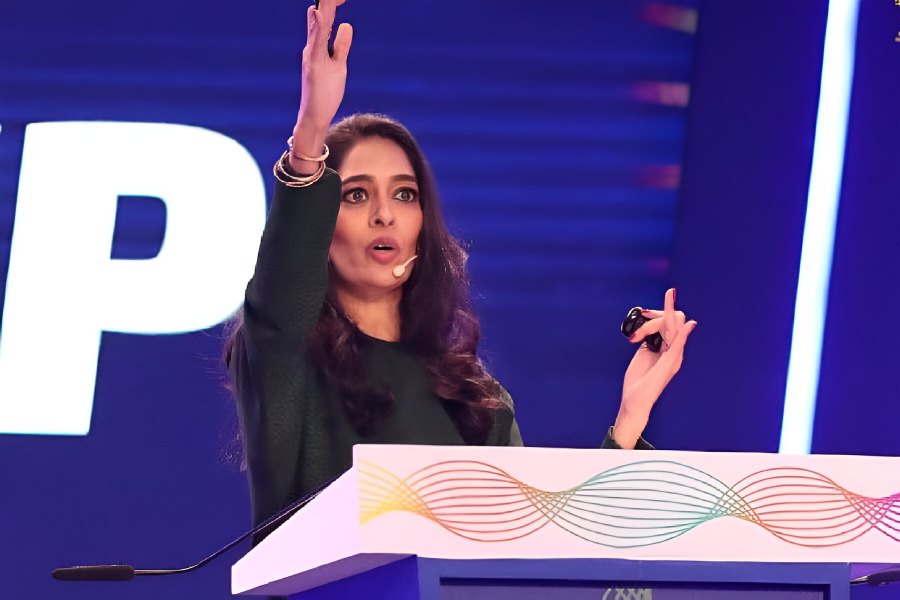President Donald Trump has sought to assure an anxious American public that help was on the way to overwhelmed hospitals, and that private companies had agreed to provide desperately needed medical supplies to fight the fast-spreading coronavirus.
But Trump resisted appeals from state and local officials and hospital administrators for more aggressive action, saying he would not compel companies to make face masks and other gear to protect front-line health workers from the virus.
Speaking at a White House briefing with Trump, Vice- President Mike Pence said the federal government had placed orders for “hundreds of millions” of the N-95 face masks that can shield medical workers from the virus. Trump said the clothing company Hanes was among those that had been enlisted to start churning out masks, although the company said they would not be the N-95 masks that are most effective in protecting medical workers.
Neither Trump nor Pence would say when the masks would be ready. And it is unclear whether enough new masks and other protective gear will be available before health care facilities start getting overwhelmed by a flood of infected patients. More than 21,000 cases of the coronavirus have been confirmed in the US, and that number is expected to soar in coming weeks.
As more of the nation goes into an unprecedented lockdown — businesses shuttered, one in four Americans urged to stay in their homes, layoffs soaring — experts expect the US economy to shrink at a quick pace in the first half of this year.
Seeking to cushion that blow, lawmakers and Trump administration officials were holding weekend negotiations over an economic-stabilisation package with a price tag of more than $1 trillion. Resolving one of the major remaining sticking points in the legislation, Democrats and Republicans appeared to be nearing an agreement to send cash payments to Americans.
Federal officials also continued to scramble to make it easier for people to get tested for the coronavirus.
The food and drug administration said on Saturday that it would permit a Silicon Valley company, Cepheid, to start selling a diagnostic test that could determine in about 45 minutes whether a patient has the virus that causes Covid-19.
The company’s chief medical officer, David Persing, said the new tests were likely to hit the market late in the coming week. He did not say how many would be available or at what cost.
The lack of widespread access to tests has provoked a weeks-long outcry nationwide.
But as tests have become more readily available, the supplies of masks and other protective gear needed for those administering the tests have been running low.
In other words, a shortage of masks has become a bottleneck slowing the rollout of testing, which experts say is crucial to containing the virus.
State and local officials in New York and elsewhere have been pleading for help from Washington and industry.
Trump on Saturday continued to resist calls to use the Defense Production Act, a Korean War era law that empowers the federal government to exert control over the private sector to meet national defense needs and ensure that supplies get to where they are most needed, regardless of the business plans of the companies involved.
Trump said that his inclination was not to interfere with market forces. And because companies were voluntarily heeding his calls to action, he said it was unnecessary to invoke the act.
The manufacturing company 3M has said it is sharply increasing its production of N-95 masks, which filter small particles and droplets from the air. The company plans to increase its production in the US, where it makes about 400 million masks a year, by more than 30 per cent over the next year.
Honeywell said it had more than doubled its production of N-95 masks in recent months.











